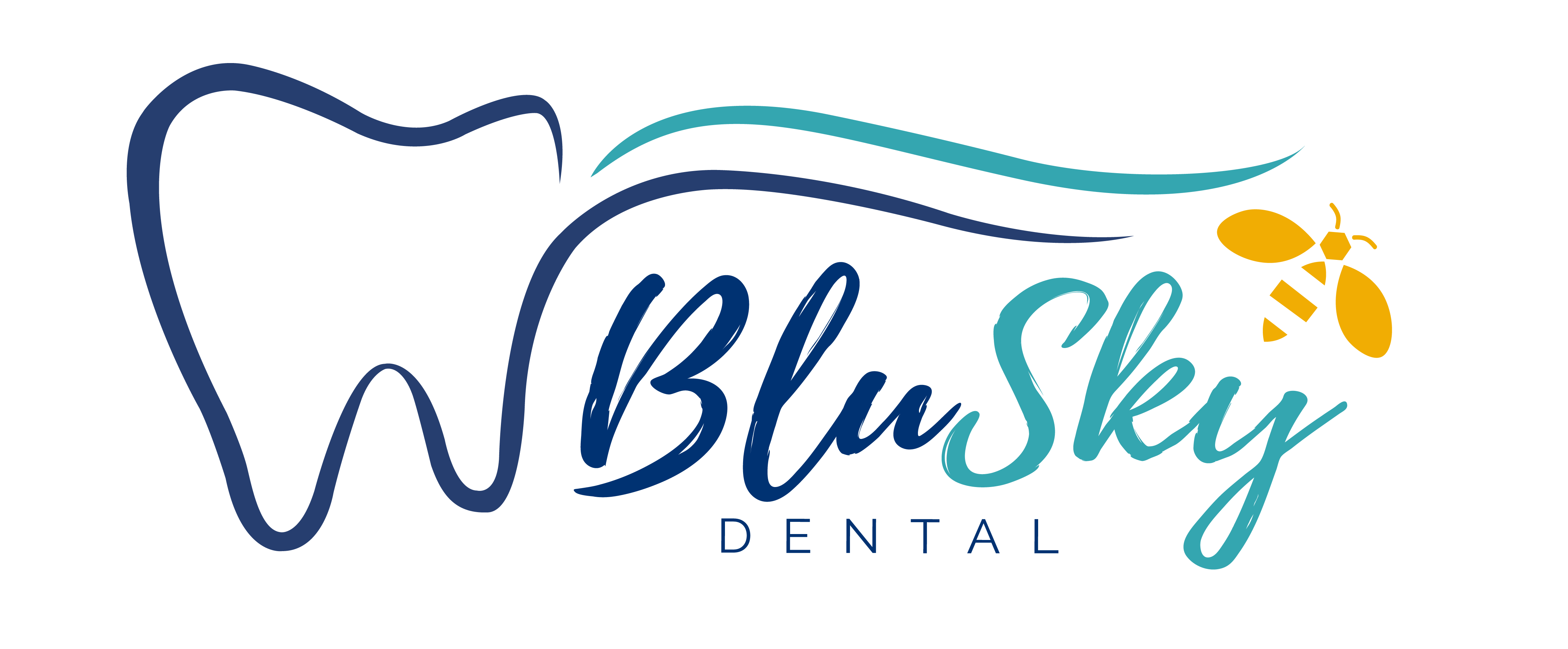
When you hear the term “root canal,” what’s the first thing that comes to mind? For many, it’s pain, lengthy procedures, and an uncomfortable recovery. But the truth is, root canals have been misunderstood for years. In fact, when done properly, a root canal can save your tooth, relieve pain, and restore your smile, without the fear and discomfort that so many people associate with it.
At BluSky Dental, we believe in educating our patients so they can make informed decisions about their oral health. That’s why we’re here to debunk the myths surrounding root canals and walk you through what you can expect if this procedure becomes necessary.
What Exactly Is a Root Canal?
A root canal is a dental procedure used to treat infection or damage inside the tooth. Specifically, it targets the pulp, which is the soft tissue containing nerves and blood vessels. The procedure involves removing the infected tissue, cleaning out the root canals, and then sealing the space to prevent future infection.
The goal of a root canal is simple: to save the tooth. The infection is what causes pain, not the treatment itself. The procedure actually brings relief by removing the source of discomfort.
When Do You Need a Root Canal?
Root canals are often needed when:
- Persistent tooth pain: Especially when chewing or applying pressure.
- Sensitivity to hot or cold: If the discomfort lingers after the source is removed.
- Swollen or tender gums around the affected tooth.
- A darkened tooth: This can indicate nerve damage inside the tooth.
- Deep decay that has reached the tooth pulp.
- Cracks or trauma that expose the inside of the tooth.
In some cases, there may be no pain at all. That’s why it’s important to visit BluSky Dental regularly for check-ups so we can catch problems early.
Why You Shouldn’t Fear a Root Canal
There’s no need to dread the thought of a root canal. At BluSky Dental, we use the latest techniques and technology to make the procedure as comfortable as possible. Here’s a look at some common misconceptions about root canals and why they’re not as scary as you might think:
- “It’s going to hurt.”
Thanks to modern anaesthetics and advanced equipment, a root canal is no more painful than getting a regular filling. Most of our patients are surprised at how smooth and painless the process is. We ensure you’re fully numbed, so you won’t feel any discomfort during the procedure.
- “It’s a long, drawn-out procedure.”
While it’s true that some root canals require two visits, many can be completed in just one appointment. The first visit typically involves removing the infected pulp and cleaning the area. If necessary, the second visit will involve sealing the tooth with a crown or other restoration.
- “Why not just pull the tooth instead?”
While extraction might seem like an easy fix, removing a tooth can lead to problems down the road, like shifting teeth, bone loss, and difficulty chewing. A root canal helps preserve your natural tooth structure, which is always the better option.
What Happens During a Root Canal?
Here’s what you can expect during your root canal at BluSky Dental:
- Examination & Diagnosis: We’ll take X-rays to assess the extent of the infection and determine if a root canal is necessary.
- Local Anaesthesia: We’ll numb the area around the tooth so you won’t feel a thing.
- Accessing the Tooth: A small opening is made in the crown of the tooth to access the infected pulp.
- Cleaning & Shaping: The infected tissue is removed, and the root canals are cleaned and disinfected.
- Sealing the Tooth: The canals are filled with a biocompatible material to prevent reinfection.
- Restoration: A crown is placed on the tooth to restore its shape, size, and function.
What Is Recovery Like?
After a root canal, most patients experience minimal discomfort. You may experience mild soreness or sensitivity in the treated area, but this can typically be managed with over-the-counter pain medication. Most patients return to normal activities the day after surgery.
We’ll provide you with specific aftercare instructions and are always available to answer any questions you may have during your recovery.
Like any dental procedure, a root canal carries a small risk of complications, such as reinfection. However, this is rare, especially when performed by an experienced professional like those at BluSky Dental. We use state-of-the-art technology to ensure the procedure is as effective as possible.
Both the Canadian Dental Association and the Canadian Academy of Endodontics confirm that a root canal is a safe and effective procedure. In fact, they are among the most common dental treatments with a high success rate. At BluSky Dental, we follow the highest standards to ensure your treatment is smooth, comfortable, and long-lasting.
The Bottom Line: Root Canals Save Teeth
If you’re experiencing tooth pain, swelling, or discomfort, don’t wait to seek treatment. Ignoring the problem can lead to more severe issues down the road, including bone loss or the need for more expensive procedures. Root canals are a safe, effective way to preserve your natural tooth and relieve your pain.
At BluSky Dental, we’re committed to providing compassionate care and making sure you feel confident throughout the process. If you think you may need a root canal or would like a second opinion, please contact us today. We’re here to help you achieve optimal oral health without fear.

